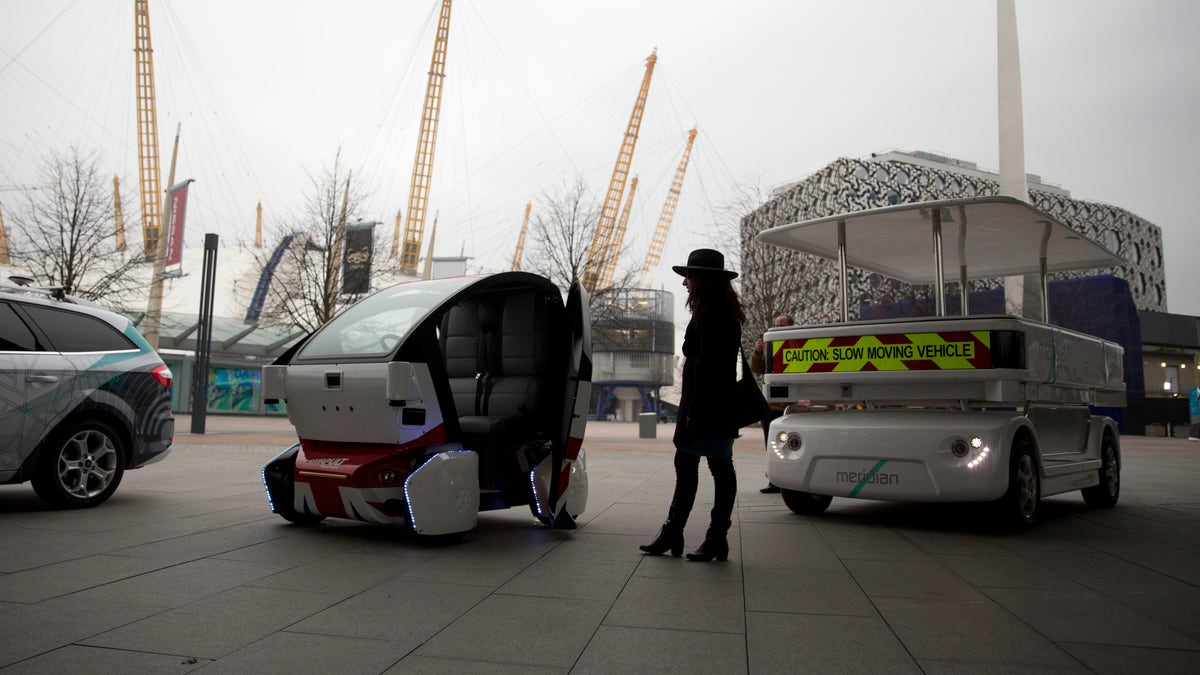
A woman poses for photographers beside a prototype driverless car called a LUTZ Pathfinder Pod, center, and a Meridian shuttle, right, during a launch event for the media near the O2 Arena in London. (AP Photo/Matt Dunham)
Believing the driverless car industry could be worth as much as $29 billion by 2025, the U.K. government said Wednesday it wants to go easy on regulating the testing of such vehicles in the hope of pushing research forward at a faster pace.
The “light touch” approach was revealed at a special event in London where officials gave the nod to the testing of driverless cars on UK roads following a six-month review of the fast-developing sector.
Related: Google releases ‘fully functional’ driverless car prototype
Early initiatives, however, will involve pod-like autonomous vehicles in pedestrianized areas, rather than driverless cars on roads. Four cities across the country are now preparing to take part in pilot schemes designed to put the latest technology through its paces.
Milton Keynes, a city located about 45 miles north of London, will be one of the first to take part in the tests, which are scheduled to start later this year. Trundling along a designated route will be 40 Lutz Pathfinder pods, each one equipped with sensors, cameras, and routing technology. The system also includes a mobile app so people can easily hail the two-passenger pods. With a top speed of 15mph, you won’t be going anywhere fast, but this is more about testing the tech than getting people from A to B in super-quick time.
Related: Uber to develop driverless cars, just like Google
U.K. transport minister Claire Perry said on Wednesday she’s determined for Britain “to be at the forefront of this exciting new development, to embrace a technology that could transform our roads and open up a brand new route for global investment.”
She added that the trials were a great opportunity for the country “to take a lead internationally in the development of this new technology.”
The government is now creating a Code of Practice, set to be published this spring, to provide guidance for those wishing to test driverless cars on U.K. roads. Officials promise the code will help create a “more flexible and less onerous” environment for testing compared with other countries currently exploring the technology. Such a relaxed attitude, the government says, should help the U.K. to stay at the forefront of driverless technology development while at the same time maintaining safety.
